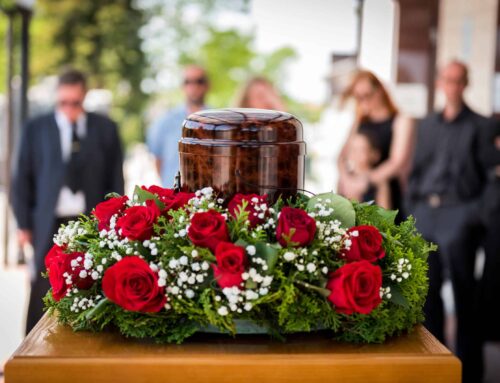One of the objectives of the Philadelphia Cremation Society is to act as a resource for people who have questions about the cremation process. Below are some of the most common questions people tend to have about the process. While we tried to provide clear answers to these questions, please know you can reach out to our staff for more information.
1) How is the body prepared for a cremation?
Much care and respect is given to the body as it is prepared for cremation. We make sure the body is properly identified and that the necessary paperwork is complete before we begin the process.
The process of preparing the body is relatively simple. Usually, the body is cleaned and dressed before the identification process. Any jewelry is removed from the body and set aside to return to the family. Any medical devices are removed from the body, such as pins, screws, implants, and fillings.
Once we confirm the deceased’s identity, the body is placed in a cremation container, and the process begins.
2) Does the body feel pain during cremation?
Please rest assured that the person you love is no longer in pain after they die. Even though you still grieve the loss of your companion, you can receive some solace knowing that your loved one is no longer hurting.
3) Can I still have a memorial service if I use cremation?
Yes, you can still have a memorial service for your loved one if he or she is cremated. There are several options to consider.
- If you do not plan to have an open-casket viewing, your loved one’s body can be directly cremated after death. When undergoing direct cremation, the body doesn’t have to be embalmed. The family can choose to have the cremains present at the funeral or not.
- Even if your loved one wanted to be cremated, you could still have an open-casket viewing. The body would first be embalmed, prepared for viewing, and placed in a casket. After the visitation or funeral, the body would be prepared for cremation.
4) Are cremated remains sterile?
During the cremation process, the body is heated to nearly 2,000 degrees. Even though no definitive studies state that the cremated remains are sterile, most people in the scientific community make that assumption.
5) What is a direct cremation?
Direct cremation refers to the act of the body being cremated soon after death. Families choose direct cremation if they aren’t planning an open-casket funeral. Direct cremations are one of the least expensive options for families to consider after a loved one passes.
6) Do I need to buy an urn?
Most cremation centers return the cremated remains to the family in sturdy cardboard containers. If you plan to scatter the remains, you may not need to purchase an urn (even though some buy scattering urns to simplify the distribution.)
If you plan to bury the cremated remains in a cemetery plot, ask the staff whether you are required to buy an urn. Some cemeteries require specialty urns that won’t collapse under the weight of the earth. Others may require that the urn be placed in a vault to keep the ground from collapsing after it is buried.
7) What can I do with cremated remains?
You have many options to consider when thinking about what to do with your loved one’s cremated remains.
If you wish for the remains to have an eternal resting place, you can bury them in a cemetery plot or put them inside a columbarium niche. Some families choose to scatter the cremated remains of their loved ones in a significant place. Other families divide the cremains, which may be an option if the family can’t obtain a consensus. Some people choose to keep the remains of their loved ones in an urn in their home.
In addition to these typical ways to care for cremated remains, you may also choose to have precious stones or diamonds made from them. You may have them made into a piece of glass artwork, placed into a vinyl record, or mixed in with your tattoo ink.
We know you have more questions about the cremation process. You can find more common questions and answers on our FAQ page, but please do not hesitate to reach out to us for additional information. The Philadelphia Cremation Society provides a needed service, but we do it with compassion, patience, and understanding. We are happy to answer any questions that will guide you in the funeral planning process. Give us a call at (610) 632-1191 or fill out our contact form if you have any additional questions and one of our caring representatives will be happy to help.





